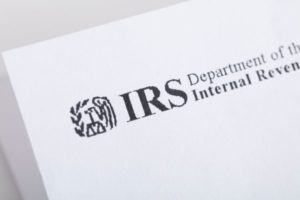Tax debt is usually an unsecured debt. Even though it is given priority treatment in bankruptcy cases, it is usually a form of unsecured debt. These taxes may be dischargeable in bankruptcy under certain circumstances. It is possible that unsecured taxes may be converted to secured taxes by the filing of a tax lien by the IRS. Tax liens may substantially affect bankruptcy debtors in that they may have to pay taxes that would otherwise be dischargeable.
The initial considerations when a tax lien is filed by the IRS is to determine whether the tax debt actually becomes secured. It may not attach to anything of value. If, in fact, it does attach to something of value, this value may or may not cover the amount of the tax owed.
The effect of fully securing a tax debt by a tax lien is based on whether the taxes are legally dischargeable in bankruptcy. If the underlying tax debt is not dischargeable, a tax lien has no effect – the taxes still have to be paid.
However, if the taxes are dischargeable in bankruptcy, then the tax lien makes a significant difference. If a Chapter 7 bankruptcy is filed, the taxes would be discharged. However, because the tax lien survives the Chapter 7 case, the lien would have to be paid in full if the home was sold or refinanced. Under some circumstances, the IRS could foreclose on the tax lien for payment. Debtors who have a fully secured tax that would otherwise have been discharged should contact the IRS immediately after receiving their discharge to arrange a payment schedule.
In a chapter 13 bankruptcy case, debtors could provide for payment in full of the taxes, with interest. This is a safer alternative to arranging payments with the IRS. The most important difference would be that the automatic stay would remain in place during the entire time that the debtor would be making payment to the IRS. In a chapter 7 case, payments would be made to the IRS after discharge when the automatic stay is no longer in effect.
The “automatic stay” prevents virtually all creditor collection efforts against a debtor and his or her assets during an active bankruptcy case. This protection lasts for the duration of a chapter 13 bankruptcy case, which is three to five years. Thus, a chapter 13 case is well worth considering for anyone who has assets that are encumbered and subject to a tax lien.
Why should you consider the Morrison Law Group? We are passionate about helping people. The team of attorneys and staff at the Morrison Law Group cares about its clients. We strive for complete client satisfaction. Call 801.456.9933 today to schedule a FREE consultation. We have locations in Ogden, Logan, Sandy, and St. George to serve the residents of the counties of Weber, Cache, Salt Lake, Utah, Morgan, Davis, Washington, and surrounding areas.



